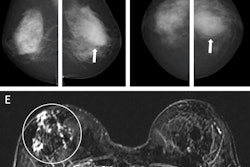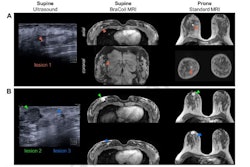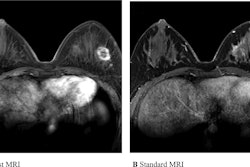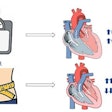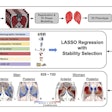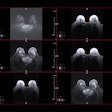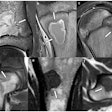Functional MRI (fMRI) has revealed a brain circuit for creativity, researchers from Mass General Brigham in Boston have reported.
A group of different brain regions that are activated by creative tasks are part of one common brain circuit, wrote a team led by Julian Kutsche, a researcher with the Center for Brain Circuit Therapeutics at Brigham and Women's Hospital. The findings were published on 13 February in JAMA Network Open.
"Some people with neurologic diseases experience a new onset of creative behavior and show specific patterns of damage that align with our creativity circuit," Kutsche said in a statement released by Mass General Brigham.
A definition of creativity could be "the act of generating new and useful ideas in a changing environment," the team noted. The neuroanatomical origins of creativity have long been of interest to researchers, and may also help clinicians better understand symptoms among patients with various brain diseases.
Kutsche's group conducted a review that assessed 36 fMRI brain imaging studies published between 2004 and 2019; these works included data from 857 healthy patients and revealed 415 brain coordinates activated by creativity tasks such as drawing, creative writing, and making music. The team then assessed fMRI exam findings from 4,804 patients who had changes in creativity due to brain injury and neurodegenerative diseases.
The group found the following:
- This brain circuit for creativity was defined by negative connectivity between coordinates activated by creativity tasks and the right frontal pole, which controls monitoring and rule-based behaviors.
- The features of the circuit aligned with changes in creativity reported among patients with neurodegenerative diseases, specifically increased creativity reported in those with semantic variant primary progressive aphasia (svPPA) -- or loss of word meaning -- and with behavioral variant frontotemporal dementia (bvFTD).
Study co-author Dr. Isaiah Kletenik, a neurologist at the Center for Brain Circuit Therapeutics, noted that "reduced activity in the right frontal pole could align with the hypothesis that creativity requires shutting down a function," suggesting that "creativity may depend on inhibiting self-censoring assessments that could then allow free association and idea generation to flow more freely."
"To be creative you may have to turn off your inner critic to allow yourself to find new directions and even make mistakes," he said.
The study could help clinicians better understand how "some neurodegenerative diseases might lead to decreases in creativity while others may show a paradoxical increase in creativity," and could "potentially add a pathway for brain stimulation to increase human creativity," according to Kletenik.
The complete study can be found here.






